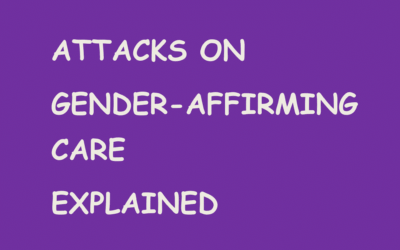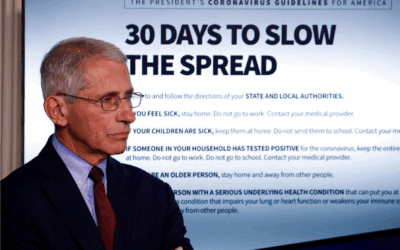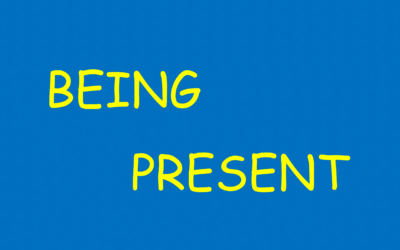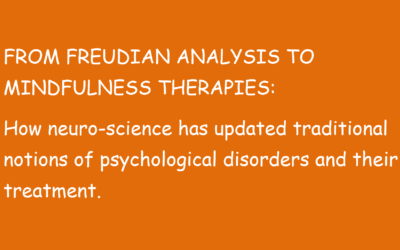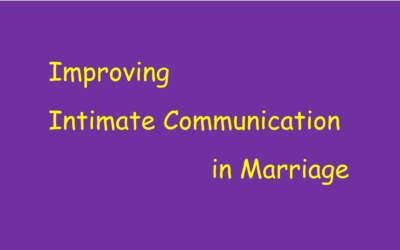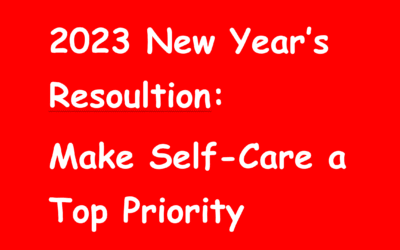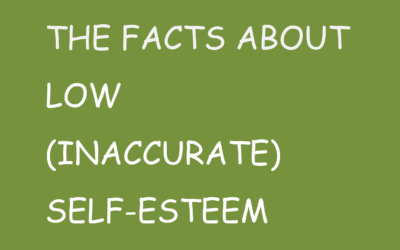Blog & Video Archives
Past Bridge Street Mental Health segment with accompanying text.
The SG on SM & Kids
Recently, you may have heard about the U.S. Surgeon General’s warning to parents about the possible harm that social media poses for children. Surgeon General: Why Social Media Harms Youth Mental Health | Time Today, I want to summarize and comment on his main concerns.
To begin, social media has a positive side. Studies have shown that platforms such as Instagram and Facebook provide children outlets for creative expression as well as for making positive social connections. Social media use can be positive for mental health and well-being | News | Harvard T.H. Chan School of Public Health
That said, the Surgeon General wants parents to know that, at this time, there are no conclusive studies which show that social media is safe or harmless for kids. Further, there are indications that, for some young adults and situations, social media can be harmful to a child’s mental health in several ways. Here is a summary of concerns along with some useful tips to help you cope with this omni-present technological reality.
ATTACKS ON GAC EXPLAINED
May is mental health awareness month. This year I want to explain why some states are banning Gender Affirming Care (GAC) and expose the wolf-in-sheep’s-clothing scam called Gender Explorative Therapy (GET).
To be clear from the get-go, GAC is a legitimate treatment for gender dysphoric young folk . GET is a religiously backed hoax which ignores medical science and is harmful to transgendered non-conforming (TGNC) youth . https://www.nytimes.com/2022/06/15/magazine/gender-therapy.html
THE ISSUE Under the misleading banner of protecting children, a number of conservative state legislatures have chosen to pass laws which follow religious dogma rather than science.
Opponents of GAC want it banned because they believe gender dysphoric children, i.e. kids whose gender identity conflicts with the gender which was assigned at birth, is simply a transient emotional confusion and is not a real medical condition. Thus, they view the medical aspect of GAC such as puberty blocking drugs, as not only unnecessary but also harmful.
In fact, the effort to interfere with necessary medical treatment poses a real threat to the health and well being of gender dysphoric youngsters. https://wyofile.com/health-experts-gender-affirming-care-saves-lives/?gclid=Cj0KCQjwmN2iBhCrARIsAG_G2i4XSt60BiHr5nb8PATeCdfcS0gu92BPDRgRXpT9tqkIw9HnblP9xnAaAtPKEALw_wcB
(Here is a link which lists the large number of medical/ professional organizations which oppose both the laws banning GAC and GEC. https://transhealthproject.org/resources/medical-organization-statements)
Even worse, the number of states banning GAC is growing. Here is a map which shows states that are considering such legislation. https://abcnews.go.com/US/map-gender-affirming-care-targeted-us/story?id=97443087
ABOUT LEISURE DEFICIENCY
Recent hospitalization and death statistics related to COVID-19 reveal that the pandemic’s medical threat has dramatically declined. Covid in the U.S.: Latest Maps, Case and Death Counts – The New York Times (nytimes.com) That said, other studies show that the pandemic, together with other factors, has had a devastating impact on America’s mental health. Rates of anxiety and depression have risen among all age groups and the number of people seeking counseling is sky-rocketing.
Experts believe that the cause of this problem is complex and actually pre-dates COVID-19. Such things as the internet and 24/7 on-line and cable news as well as the omni presence of smart phones and social media have over-loaded our ability to process so much distressing information. Have Smartphones Destroyed a Generation? – The Atlantic In other words, it’s not just the alarming content of things like mass shootings or war but the non-stop bombardment of the reports which have created a mental health crisis.
Another crucial element exacerbating the problem is America’s poor level of self-care and trivialized attitude toward leisure. Studies have shown that our nation’s traditional hard-work-no time-for play ethic has interfered with our society’s ability to cope with stress. Not giving ourselves sufficient time to recharge has caught many Americans with dead emotional batteries.
Despite various attempts to educate the public about the importance of self care, disdain for recreation persists. Evidence of this view is seen in Cadillac’s 2014 Super Bowl commercial. In it, a smarmy guy strolls around his pool extoling America’s superior work ethic over European’s who take so many vacations.
His message is that only by working hard can one afford to buy expensive cars. Ironically, studies have shown that people who push too much and recreate too little are less productive. Indeed, self-care is not a luxury or waste of time. Leisure is not only important for personal happiness and resilient mental health, it also is necessary for top performance.
In addition to being false, the hard work myth creates a psychological problem. The persistence in traditional attitude has caused many to develop a psychological condition that I would call Leisure Deficiency.
Fortunately, leisure deficiency is treatable. Thus, today, I want to discuss 1) How this false belief arose, 2) How to tell if you suffer from leisure deficiency and 3) Why leisure is important and 4) What can be done to incorporate leisure into your regular routine.
COVID and Public Mistrust
Last month marks three years since Covid-19 exploded in America and began devastating the world. Sadly, over this period trust in our public health officials and government agencies, like the Centers for Disease Control, has plunged.
Recently, public health expert, Dr. Leana Wen, commented about the growing mistrust of science and public health policies. Her remarks deserve our attention. She explained how the government’s messaging about COVID-19 created confusion and mistrust. I would like to build on her remarks and explain the psychology of public misturst whichhas grown during the crisis.
BEING PRESENT
One of the most common problems reported by couples, (not feeling listened to or heard), can, with some practice, be fixed. Learning to pay attention and truly be present with one’s partner is crucial for good communication in any relationship. It is especially important in intimate ones. https://www.healthline.com/health/being-present
Being present is especially challenging when what a person is expressing is negative, angry, fearful or discouraged feelings. Rather than patiently listening, our natural inclination may be to change the subject, tune out or physically withdraw. That’s because listening to intense negative emotion can trigger stressful feelings within us which make it difficult to respond rationally.
Men may have an even more difficult time with empathy because of their natural tendency is to solve problems and provide solutions. While that might sound helpful, it often, isn’t. Offering premature solutions can be experienced as an interruption which stops the person from completing what they are trying to say.
Many communication difficulties stems from a fundamental confusion and oversimplification of why people talk to one another. Sometimes verbal communication is simple and direct. When you go to a bank and ask the teller for twenty dollars, the transaction is concrete. It doesn’t matter what either party is feeling as long as the teller correctly does what the customer asked.
Most human communications, however, are complex and take place on two levels: the concrete/literal level and the subtext/feeling level. What many couples don’t understand is that a connection on the feeling level must be made FIRST before moving to the concrete or literal meaning of the words.
Being there emotionally is what empathy and good communication is all about. For example, imagine a wife comes home from an appointment with a new hair dresser and asks her husband , “What do you think ?”
Although the sentence sounds like simple question, it isn’t. Any man who thinks that it is will have a serious problem on his hands. In fact, the meta-level/emotional level expressed by her facial expressions, body language and voice tone reveals that what she is asking for is not his opinion but reassurance that the new stylist did not butcher her hair. thttps://www.healthline.com/health/being-present
In order for the husband to respond in a helpful way, he needs to give her his full attention. Here are some tips to help you improve your empathy skills, assist you in being a better listener and be more fully present in conversations
Mindfullness Psycotherapy
Recently I was explaining my therapeutic approach to a new client . When I mentioned that one of the goals of therapy was to increase mindfulness, she interrupted and said that she was not "into" yoga! While mindful meditation is a part of the practice of yoga,...
Intimate Communication
Valentine’s Day is all about expressing love and creating romance; but, not for everyone. While these are a high-priority concerns for those who are in new relationships, many folks who have been married for a while have a different experience.
Many report that, although getting together sexually was never a problem in the beginning, over time things changed. The addition of kids, busy schedules and familiarity would often interfere with spontaneous exciting rendezvouses.
As a result, occasions like Valentine’s Day can be awkward and stressful for couples who have not learned how to communicate their intimate desires and carve out time for intimacy. For others, Valentine’s Day serves simply to reveal that a couple’s sexual routines have gone stale and fallen into a rut. What was once new and exciting can become predictable and ho-hum.
One reason for this dilemma is that the fact that many couples take sex for granted and assume that having good sex in marriage just happens naturally. In fact, it does not. Sustaining good sex in marriage takes planning, good communication and novelty.
An essential factor for good sexual communication is clear sexual messaging. Sadly, many couples are uncomfortable revealing their desires. Likewise, little attention has been paid to help couples overcome obstacles such as embarrassment which inhibit talking freely and honestly about sex.
Today I want to offer some suggestions to help couples improve their intimate communication and create fresh and comfortable sexual signals.
Why Romance Matters
As Valentine’s Day approaches, the media will flood us with all sorts of romantic hype and I’m glad. Frankly, many couples, who have been together for a while, suffer from a romance deficit. So today I want to talk about why romance is so important and essential for lasting and satisfying intimate relationships.
Unfortunately, even though marital therapists realize the importance of romance, many couples don’t. When asked, however, most partners say that they would like more of it in their relationship.
Sadly, many suffer from erroneous beliefs about romance. For example, many falsely believe that, once the romantic spark is gone, it’s gone for good with no way to get it back. The good news is that there are plenty of ways to rekindle romantic feelings and restore passionate excitement to your marriage.
Given all of the misinformation surrounding romance and desire, here are the facts as well as some tips for increasing it in your relationship :
Santos and the Truth
The long list of George Santos’ resume lies seems unending. They are an ongoing fountain of material for comedians and meme creators as well as being a huge source of amusement for Democrats.
Beyond its entertainment value, however, the George Santos debacle raises questions about the psychology of one who seems almost incapable of telling the truth. What causes one to compulsively lie ? While this is a complicated question that can’t be answered here, let’s clear up some of the confusion which exists about the phenomenon of lying in general:
Goal 2023: Self-Care
Happy New Year ! For millions, the start of a new year is the time for making resolutions, i.e. things that folks resolve to do to improve their lives. Losing weight, exercising more and stopping smoking perennially top the most mentioned goals. BABY STEPS : An Effective Way to Approach Your New Year’s Resolutions. — | Pastoral Counseling Syracuse NY (revmichaelheath.com)
While all worthy endeavors, this year, I suggest that your efforts be about improving your mental health by focusing on self-care/mindfulness. Indeed, recent studies reveal that, due to the stress of COVID, political tension and other uncertainties, our mental health has declined.
The key to improving self-care is to appreciate its importance and to make it a priority. Unfortunately, wellness-mindfulness is sometimes misunderstood. It’s often seen as just another resolution that one knows that they should do but really don’t want to do. Resistance to self-care is often due the fact that it is externally imposed, e.g., a doctor’s recommendation to lose weight.
Pursuing healthy mindfulness often feels like having to endure deprivation of something you like or engaging in an unpleasant activity, e.g. giving up favorite foods or engaging in painful or boring activities.
A better way of looking at self-care is to view it as a commitment to one’s well-being. It’s the practice of “taking an active role in protecting one’s own physical and emotional well-being and happiness, particularly during periods of stress ” “What is self-care? | Global Self-Care Federation (selfcarefederation.org)
When seen this way, being good to yourself avoids the resistance and resentment of an externally imposed demand. Self-care becomes a freely made choice to ay attention to things that promote our health and make our lives easier.
Here are some commonly asked questions to help you get started improving your self-care: What does self-care involve? What keeps us from taking better care of ourselves? 3) What can help you to improve your self-care?
Inaccurate Self-Esteem
The problem of low self-esteem ( LSE) has been around for many years. In fact, LSE has almost become a psychological cliche which in some ways is misunderstood.
Nonetheless, having a poor self-image can cause a number of emotional and relational problems.
Today I want to clarify, refocus and define the problem of low-self-esteem as one stemming from a distorted/inaccurate perception of self. In doing so, I want to step back and explain 1) Why having a positive self-image is so important , 2) The basic components of a positive self-image and 3) How self-esteem is damaged.
Christianity, Sex & Shame
Recently, I wrote about the problem of false guilt and shame which can interfere with a person’s ability to think clearly and relate rationally to others. False Guilt and Shame | Pastoral Counseling Syracuse NY (revmichaelheath.com)
Today I want to talk about shame and guilt about sex and the major source of these destructive feelings, i.e. traditional religious teachings about sex and pleasure. Over the centuries, traditional Roman Catholic and Protestant doctrines have caused of a lot of needless stress. And, as hard as it is to believe, they continue to be a source of pain for many.
From a psychological point of view, traditional Christian beliefs viewed normal sexual feelings to be in conflict with God’s law and, therefore, sinful. Thus, lacking positive teachings about sex, natural desires evoked feelings of sinfulness and even self-hatred.
Those who suffer with this conflict need to know that this antipathy was not always the case. It is important to understand the evolution of Christian thought and how the delights of sex found in Song of Solomon were squelched and replaced with negative views.
While complex, two major developments are largely responsible for this change: 1) apocalyptic expectations. and 2) The disappointment of those expectations experienced by the delay of the Jesus’ 2nd coming (the Parousia). Let me explain,
The Internet and Addiction
I recently wrote about how the advent of internet pornography had made raising children much more difficult for parents. ON PORN AND PARENTING | Pastoral Counseling Syracuse NY (revmichaelheath.com)
Today, I want to discuss how frequent internet activity triggers dopamine release in the brain and may lead to addiction. Specifically, I will explain how excessive time on a smart-phone use can hook its unsuspecting users .
Although addiction is an age-old problem, smart-phone technology presents a new risk . Research has confirmed the problem that parents and unhappy spouses have struggled with for years: How to get members of their family to put their phones down?
To better grasp the risk that smart phones pose for addiction we need to understand 1) Some basic neuro-chemistry. Particularly how dopamine creates addictive behaviors. 2) How folks can become addicted to their smart phones. 3) How to tell if someone is addicted to their phone. and 4) Successful treatment strategies for smart-phone addiction.
ON PORN AND PARENTING
Few would disagree that omnipresent internet pornography harms children and poses a difficult challenge for parents. That said, many who oppose it don’t understand the real damage that it does. Worse, many of the common approaches exacerbate the problem or interfere with open communication .
Although internet porn has been around for over twenty-five years, we are now just beginning to understand how it impacts a child’s social and psychological development. To be clear, internet porn is more difficult to deal with than pornography from an earlier era. The Impact of Internet Pornography on Adolescents: A Review of the Research: Sexual Addiction & Compulsivity: Vol 19, No 1-2 (tandfonline.com)
In response, I want to examine the problem and provide some help for parents. Specifically, I want to:
— Explain why internet pornography is different from earlier X-rated materials.
— Dispel some common myths about pornography.
— Clarify how internet pornography is harmful for young children and teens.
— Debunk popular approaches to dealing with porn which do not work. and
— Offer a rational approach for teaching children about porn on the internet.
Before Seeing a Therapist
Recently, I received a questionnaire from my new doctor in advance of my annual wellness exam and this got me to thinking: Why not do the same for my new clients ?
In the past I’ve written a number of articles which try to explain what counseling is. Becoming Reasonable: Updating our Notions of Mental Health and Counseling. (revmichaelheath.com) Likewise, there are many books and articles which explain what to expect from counseling but not a lot which help you to mentally prepare for your first session. –What to Expect from Therapy | JED (jedfoundation.org) Many wonder if it is okay to just show up?
Although many folks do come in for their first session unrehearsed, I have found, over the years, that it’s helpful for a client to take a little time before the first appointment and ask themselves some basic questions about what it is that is bothering them.
So, today’s segment is just that, some things for folks to consider who have never gone to counseling before and who are a little uncertain about how to proceed. After all, it is intimidating to sit down with a complete stranger and talk about personal and even embarrassing problems. How does one begin ?
Reflecting on what’s bothering you not only helps to calm the jitters but it also can provide an important context from which the issue emerged. This wider perspective is necessary for the counselor to accurately assess and treat what is of concern to you.
Here are some questions to ask yourself which can help you clarify / communicate your experience to your counselor and help you get started:
2017
- May 31, 2017
Understanding the Parallels between Biblical and Psychological Wisdom - May 14, 2017
Aprreciating the Emotinal Complexity of Mother’s Day - May 02, 2017
Redefining Mental Health: The Struggle to be Reasonable - April 16, 2017
Easter and the Therapeutic Process: The Rest of the Story - April 02, 2017
Judgers and Perceivers - March 19, 2017
Communication Tip # 6 : Understanding the Differences between Thinkers and Feelers - March 04, 2017
Communication tip #5 : Understanding iNtuitive and Sensate Personality Differences - February 21, 2017
Communication Tip # 4: Understanding the differences between Extroverts and Introverts - February 03, 2017
Aristophanes and the Myth of Androgyne: The Soulful Meanings of Love - January 15, 2017
The Myth of “Holding on” to the Past : Neuro-science and the Grieving Process - January 02, 2017
Being Reasonable about New Year’s Resolutions:
2016
- December 17, 2016
New Research offers Hope for Resistant Depression - December 04, 2016
Bursting Some Common Myths About Pastoral Counseling - November 23, 2016
Thanksgiving: A Time for Regaining Perspective and ,for some, Conflict - November 11, 2016
Dealing With Political Grief - November 02, 2016
Explaining the Facebook Study: Turns out Cyber Friends Are Important Too - October 19, 2016
Beyond Romantic Myths: 9 Tips for Getting real about what it takes to have a great marriage - October 03, 2016
Why Mental Health Check-Ups Are a Good Idea - September 15, 2016
Appreciating the Health Benefits of Good Friends - August 31, 2016
When it comes to sex, men are Windows and women are DOS - August 14, 2016
Good News for People Who Worry about Memory Loss - August 05, 2016
The Psychology of Blaming: Learning to See the Fear Behind the Anger - July 07, 2016
Psychological Manipulation: What it is and How to deal with it. - June 21, 2016
Coping with the Absurd and the Horrifying Stories in the News - June 05, 2016
Do you have to be “crazy” to see a therapist ? - May 18, 2016
Sex in Marriage : Are You having Enough ? - May 07, 2016
Updating the Image of Psychotherapist: A Life-Tour Guide - April 29, 2016
Updating the Image of Psychotherapist: From Orthodontist to Helicopter Pilot When people think abo - April 12, 2016
Spring Cleaning for your Marriage - March 28, 2016
Some thoughts about the importance of Hope - March 16, 2016
I-Statements 101: The Keys to Expressing Anger Constructively - March 02, 2016
Understanding Leisure as an Essential Part of Self-Care - February 12, 2016
Romantic Myth # 3: Love is a Special Feeling - February 09, 2016
Romantic Myth #2 : Love Never Ends - February 06, 2016
Bursting Popular Myths about Love - January 25, 2016
How to Make a Worry List: The Importance of Emotional Triage - January 12, 2016
Want More Intimacy In Your Relationship? Try Sharing Your Dreams - January 02, 2016
The Secret to Keeping New Year’s Resolutions
2015
-
- December 21, 2015
Light and the Meaning of the Holidays - December 07, 2015
Dealing with Increased Terror-Related Anxiety - November 20, 2015
Dealing with the stress of Holiday Gatherings - November 10, 2015
Are You An IMpatient Person ? - October 27, 2015
How Exchanging Marital Report Cards Can Improve Your Relationship - October 07, 2015
October is Domestic Violence Awareness Month - September 21, 2015
Understanding the new “Female” Viagra - September 12, 2015
Talking about end of life issues and facing our fears of dying - August 24, 2015
Bursting the Forgiveness Myth - August 13, 2015
Understainding our False Guilt about Sex - August 02, 2015
Do you know your “Organ of Distress”: Recognizing when an emotional fire is about to break out. - July 20, 2015
How to Build Trust After an Affair . - July 05, 2015
The “Emotinal Cigarette” – A breathing exercise to help you relax. - May 18, 2016
Sex in Marriage : Are You having Enough ? - June 24, 2015
Good News for Work Outs - June 15, 2015
Sneaky Depression Triggers - June 03, 2015
Human Sexuality Is More Complicated Than You Think. - May 28, 2015
Mental Health Myth # 4: Talking to friends is the same thing as going to therapy. - May 28, 2015
Myth # 3: Psychological disorders are very rare - May 06, 2015
The Myth of Mental Illness: 2.0 - May 03, 2015
Did you know that May in Mental Health Awareness Month ? - April 25, 2015
Bruce Jenner Interview Outshines Olympic Gold - April 10, 2015
White House Supports Ban on “Conversion Therapy” for Gay and Transgender Youth - April 03, 2015
Sexism in FDA: Continues a Double Standard, Hurts Women - March 16, 2015
Taking Your Emotinal Pulse - March 05, 2015
Your Emotional Docimeter
- December 21, 2015
Rekindling Passion: Part Two – The Secret to Re-igniting the Fames of Desire
-
- January 30, 2015
Rekindling Passion: Part One – The Truth about Aphrodisiacs - January 14, 2015
Emotional Triage and the Worry List - January 06, 2015
A Check-List Before Making Your New Year’s Resolutions
- January 30, 2015
2014
- December 10, 2014
Reducing Stress Around the Holidays - November 23, 2014
Feeling Grattitude When Times Are Hard - November 07, 2014
Reducing Stress for Seniors : Tips for Dealing with Everyday Worries and Finding More Joy in LIfe - October 27, 2014
Five Things You Didn’t Know About Halloween - October 14, 2014
Having Good Sex is a Sign of a Healthy Marriage - September 30, 2014
New “Consent” App Asks Partners Important Questions to Think About Before Having Sex - September 09, 2014
Lame Excuses – Why we make them. How to stop. - August 13, 2014
Robin Williams’ Severe Depression: Keeping Things in Perspective - July 16, 2014
The Quiet Crisis: Adult Children Caring for Aging Parents - June 18, 2014
Clearing up the confusion about Transgendered People and Gender Non-Conformity: Getting the medical - May 21, 2014
Getting Rid of Grudges: Just let it go – or maybe not. - April 16, 2014
Finding Romance among the Diapers - March 26, 2014
Bursting the “Hard Work” Myth”: The Importance of Leisure - February 12, 2014
Wedding Insurance and Pre-Marital Counseling :Bursting the Obligation Myth. - January 15, 2014
Submissiveness and Leadershipin the Modern Marriage
2013
- December 23, 2013
Reducing Stress Around the Holidays – A Pastoral Counseling Approach - December 18, 2013
Balancing Career and Family - November 19, 2013
Dating Younger: How the internet and social media have expanded dating choices for single people - October 30, 2013
Five Things You Didn’t Know About Halloween - October 09, 2013
Are You Bing Bullied in the Workplace ? - September 04, 2013
Are You Addicted to the Internet ? - August 14, 2013
Post-Partum Depression: What every expectant or new mom needs to know. - July 31, 2013
Secrets of Assertiveness 101: - July 08, 2013
Sex Education for Adults: Cheating - June 17, 2013
PTSD Awareness - June 05, 2013
Leaving the Nest – Vaulable Tips for Parents and Young Adults - May 22, 2013
Five Mental Health Myths - May 08, 2013
A Spring Cleaning for Your Marriage: Personal Appearance - April 17, 2013
Dealing with the Boston Marathon Bombings? - March 28, 2013
“Breaking up” with your Hairdresser - March 13, 2013
Is This ( am I ) Normal - February 27, 2013
Romantic Second Chances: When should I give him (her) another chance? - February 13, 2013
Caring and Consideration: The Keys to Lasting Passion - January 17, 2013
Emotional First Aid: Tips for Responding to Everyday Psychological Distress - January 02, 2013
New Year’s Resolutions: Why We Brake Them, How To Keep The,
2012
-
- December 19, 2012
Take Controle of your Holiday Stress - December 03, 2012
Life Smarts and The Intelligence Myths
- December 19, 2012
- October 30, 2012
Here’s the Skinny on Scary: The Facts about Phobias - October 19, 2012
Oh, I Remember it well … or maybe not ! - September 26, 2012
The Importance of Remembering - September 05, 2012
Going Back to School Chaos: Help for Parents - August 17, 2012
Money Conflicts and Marriage: Tips for Keeping the Peace - July 30, 2012
Using Your Imagination to Overcome Procrastination - July 23, 2012
UPreventing Tragic Story Overload in the Wake of the Colorado Massacre - July 09, 2012
Redefining Normal: An Inclusive Way of Understanding Mental Health - June 27, 2012
PTSD National Awareness Day : Myths and Facts - June 20, 2012
Reducing Stress When You Travel - May 30, 2012
How to Cope with an Unreasonable Boss - May 16, 2012
How to Disagree without Being Disagreeable - May 14, 2012
Myths and facts about happiness: What really makes us happy ? - April 25, 2012
Body Language: Our Emotional Traffic Lights - April 04, 2012
The Importance of Work Place Colleagues - March 14, 2012
Stress and Relationships - February 29, 2012
Is It Love or Chemistry ? Tips for knowing when real love comes along. - February 13, 2012
Can Love and Romance Last ? Yes, But It Takes Work ! - January 18, 2012
Why am I so Impatient ? Tips for Dealing with the New Technologies that are Driving us Crazy./a> - January 04, 2012
The Psychology of Successful Weight Loss — Tips for Avoiding the Emotional Pitfalls which Sabotage
2011
- December 23, 2011
Are You Emotionally Out of Shape ? Here’s a Check List to Help You Become Emotinally Fit - December 07, 2011
Don’t be So Defensive – Tips for Dealing with Criticism Gracefully - November 23, 2011
Feeling Gratitude in the Wake of Hard Times - November 08, 2011
The Truth about Secrets and Itimacy in Marriage - October 26, 2011
How to Have A Constructive Argument - October 12, 2011
The Psychological Cigarette – Understanding the Breathing/Relaxation Connection - October 03, 2011
Am I OCD or just really particular ? - September 12, 2011
The 411 about Marriage Counseling – What it Can and Can’t do. - August 09, 2011
Psychology and Smart Phones: The Risks of Overusing your PocketPC - August 01, 2011
The Art of Compromise: Keys to Successful Marital Negotiation - July 20, 2011
Planning your wedding ? Don’t forget your relationship: the Essentials - July 05, 2011
Creating 2nd Chances: Tips for Turning a Bad Situation into a Good One - June 08, 2011
The Seven Year Itch: Why it Happens and How to Prevent i - May 25, 2011
Fair Fighting – Some Ground Rules for Resolving Marital Conflicts - May 11, 2011
Unnecessary Criticism: Why we do it ; How to stop it - April 27, 2011
Money Conflicts in Marriage: It’s not just about the Money - April 13, 2011
Spring Cleaning Your Marriage: Personal Appearance - April 01, 2011
Understanding and Coping with Jealousy in Marriage - March 16, 2011
Therapeutic Self-Talk: What it is, Why it’s Helpful and How it Works . - March 09, 2011
Breaking the Ice After an Argument: Understanding the Psychology of Post Argument Silences - February 23, 2011
Guilt-Tripping and Emotional Manipulation No one likes to be guilt-tripped, yet it happens all - February 14, 2011
The Secret of Keeping Romance Alive: Tips for Busy Couples - January 26, 2011
Sibling Relationships 101:Tips for Updating your Sib Status - January 19, 2011
How Words Can Help Us to Heal The tragedies of the Tucson shooting has created many emotional wounds - January 14, 2011
A Myth About Mourning Although most of the country was moved by the ceremony held for the victims - January 06, 2011
Boosting Your Brain: Sorting out the Facts from the Myths
2010
- December 29, 2010
End of Year Marital Review and Marital Resolutions for the New Year - July 19, 2010
Pouting - June 28, 2010
Are You Just Discouraged or Really Depressed ? How to Tell the Difference - May 25, 2010
Emotional False Alarms - May 06, 2010
The Science of Making Up - April 12, 2010
Spring Cleaning for your Marriage
2009
- December 07, 2009
Marital Make-Overs for the Holidays: Tips for Fallling in Love All over Again - November 02, 2009
Marriage Is Hard - October 05, 2009
Keeping Your Cool - September 10, 2009
Nagging: Why we do It , How to Stop - July 23, 2009
Understanding Affairs - June 30, 2009
Interviewing Successfully - June 01, 2009
Helping our Parents with Difficult Decisions - March 09, 2009
The Good News About Stress - February 19, 2009
Talking to Teens about Sex


